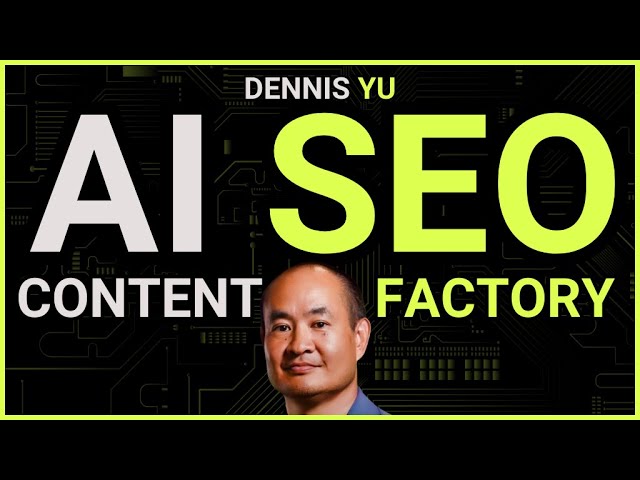
If AI can’t find verified proof that you exist, you’re invisible, no matter how much content you publish.
That’s what I told Darby Rollins when he invited me onto his Gen AI University Podcast to talk about what’s actually working with AI and SEO today.
I’ve known Darby since we both spoke at the Ad World Conference in 2021, where we shared the stage and dug into copywriting and technical SEO. Since then, we’ve stayed connected, sharing wins, strategies, and client results.
In this conversation, we broke down exactly how to build authority that both search engines and AI tools recognize, and how you can start doing it right now.
What AI SEO Really Means
Most people still treat ChatGPT and SEO as if they’re two separate things. That’s a mistake.
AI tools pull from search engine signals. Google organizes content using structured data. Both rely on Google’s Knowledge Graph: a web of people, companies, and content that tells machines who’s credible and who’s not.
So how do you get into that graph?
Start by connecting all your digital assets to your name. Your personal website, your podcast appearances, your social media, and any articles about you: they all need to tie back to one identity.
Darby Rollins asked me, “So it references verified sources to know who to recommend, right?”
Exactly. If those sources are missing or scattered, you’re invisible.
Claim Your Identity: Just Like Darby Rollins Did
We pulled up Darby Rollins’ Google Knowledge Panel. It existed, but he hadn’t claimed it, despite the fact that he’s already done the hard part. He’s published books, hosted podcasts, interviewed experts, and built a name people search for.
That’s like having a driver’s license you’ve never activated. Sure, it shows your name, but it doesn’t unlock anything.
Here’s how you fix it:
- Upload your government-issued ID to Google.
- Link all social profiles and websites.
- Add structured data (schema) to your site.
- Back it up with citations from podcasts, events, books, and press.
If your website says you were featured in Forbes, make sure it links to the actual article. Don’t just say it, show it.
UPDATE: Darby Rollins has now claimed his Knowledge Panel.
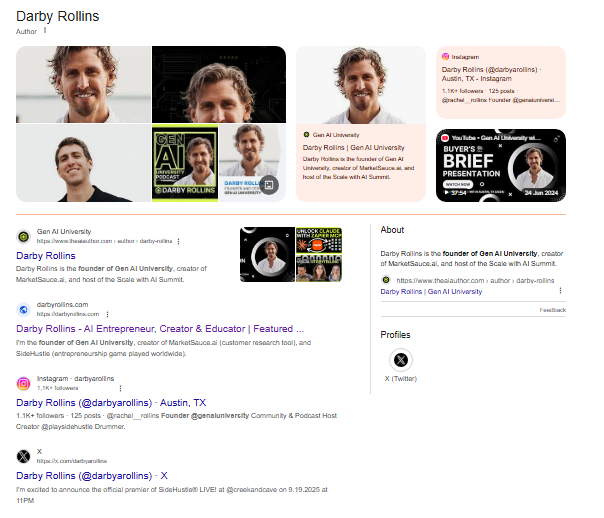
Another great example is my buddy Brady Sticker, founder of Church Candy Marketing. He went from being buried in search results for ‘Tom Brady sticker’ to earning a verified Google Knowledge Panel.
How? By consistently publishing books, podcast interviews, and real client wins, especially in the church marketing space. Once his digital footprint aligned, Google recognized him as an expert.
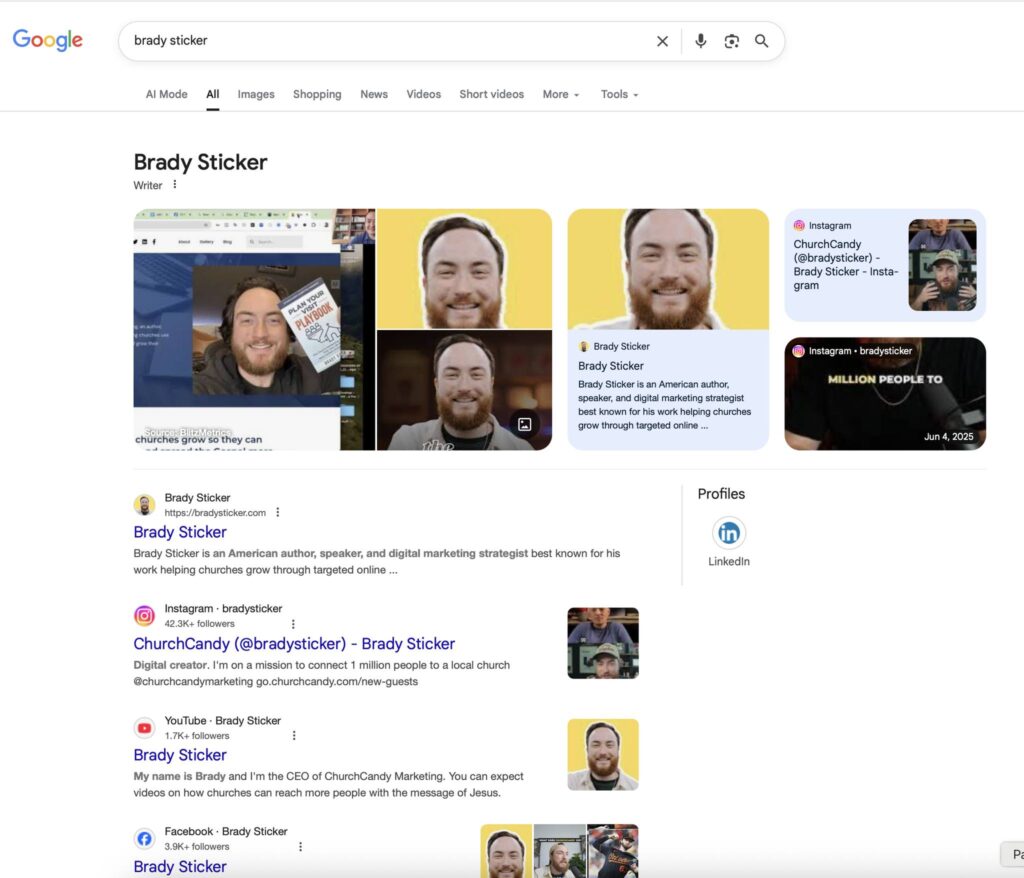
Why Inputs Matter More Than Tools
People are obsessed with the latest AI tools like Jasper, Claude, and ChatGPT.
That’s like obsessing over which frying pan Gordon Ramsay uses.
If you want to rank in AI or search, focus on your ingredients.
That means:
- Real videos of your team doing the work.
- Screenshots of dashboards and results.
- Candid moments with clients or partners.
- Short clips from speaking gigs and interviews.
Think about your last podcast, Zoom call, or customer win. That’s your content. Not the stuff you make up later.
Take, for example, my buddy, Anthony Hilb, who owns a lawn care and landscaping company in Bloomington, Indiana. He doesn’t have fancy equipment or a marketing team. Just his phone.
He records short clips of his crew mowing lawns, trimming trees, and chatting with customers. That real-world activity tells AI: this guy knows lawn care in Indiana.
Anthony’s company now ranks #1 in search engines and various AI searches, such as ChatGPT, because he has shown proof via his ingredients.
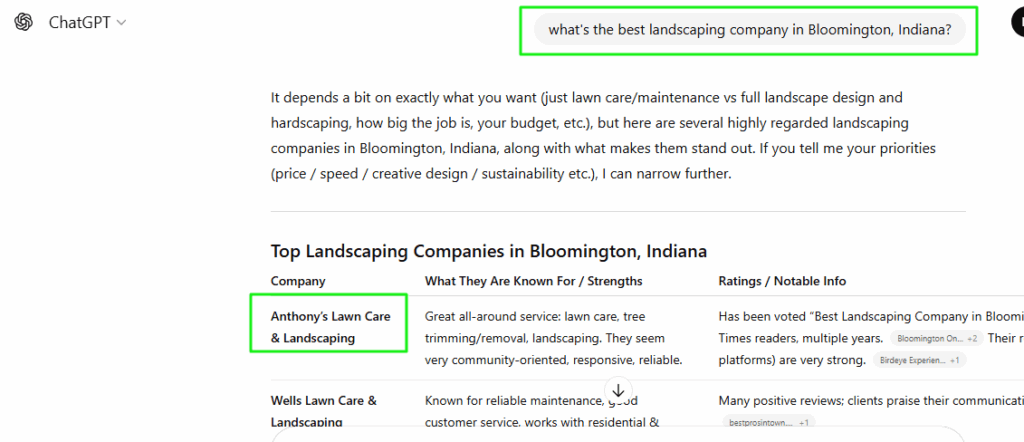
Same with Roger Wakefield, a plumber who creates YouTube videos on what actually happens under the sink. Or Jeremy, a remodeler in Phoenix, who shows his projects step-by-step.
If you’re wondering why these people rank in both search and AI, it’s not luck. They’re feeding the machine what it’s hungry for: proof.
AI tools don’t know the truth. They work on patterns. If enough trusted sources confirm your credibility, AI accepts it.
For example:
- If five podcasts call you a Facebook ads expert, ChatGPT will too.
- If ten websites say your event is the largest in your field, Claude will repeat it.
- If you claim you were in Forbes, but never link it, the machine ignores you.
Stop assuming the tools will “figure it out.” They won’t.
This is why clear citations matter. For example, if you host a conference and ten trusted sources refer to it as the largest of its kind, AI tools will pick up on that.
That’s exactly what happened with DigiMarcon. Because so many articles and pages reference DigiMarcon as the world’s largest digital marketing conference and link back to it, AI treats that statement as fact.
Darby Rollins asked, “Should we format blog titles like questions for SEO?”
That doesn’t matter if you’re not publishing consistently. Focus on frequency and proof, not clever tricks.
Build Authority With the Content You Already Have
Relationships play a huge role in this, too. I’ve been lucky to connect with people who have real authority in their fields, folks like Perry Marshall, Caleb Guilliams, and Michael Cirillo.
When your name consistently shows up alongside credible experts, that adds weight. Whether it’s hosting webinars together, doing podcasts, or being featured in their content, those relationships help feed the trust loop.
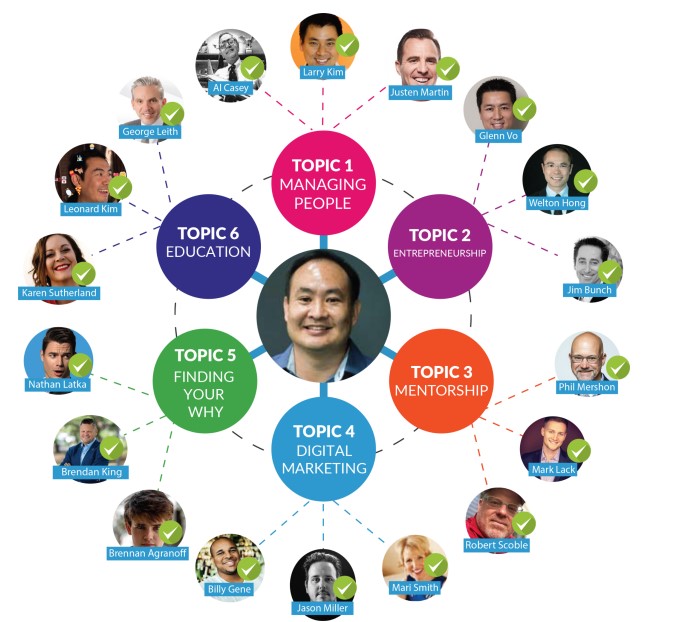
Most people already have enough content; they just haven’t connected it all in one place.
Start with your website. Does your About page include:
- Links to podcasts you’ve been on?
- Your book on Amazon?
- Screenshots from events or client wins?
For example, consider my friend Richard Canfield, who helps people create wealth through the Infinite Banking Concept. His personal brand website homepage includes: All podcasts he has been on, links to his best books, and so on. This proves to search engines and AI that he is what he says he is.

Now think about your social profiles. Are they connected to your site? Are your bios consistent? Have you claimed your profiles on LinkedIn, Instagram, YouTube, and Apple Podcasts?
Then move to external mentions. Use tools like Google Search or RightBlogger to pull up all third-party sources that mention you.
You’ll be surprised how much is out there. Your job is to link it all together.
Use the Content Factory to Multiply What Works
If you’re putting in effort already, what you need now is a repeatable system.
That’s where the Content Factory comes in:
- Produce: Record real work: Zoom calls, customer wins, podcast clips.
- Process: Use tools like Descript and ChatGPT to turn it into articles.
- Post: Share it on your site and across social media.
- Promote: Boost top content with dollar-a-day ads or organic commenting.
This is how you go from a few scattered mentions to a dominant presence.
If you’re already doing the work, just document it. Don’t wait until it’s perfect.
Think of this like a kitchen. The Content Factory gives you better tools: faster blenders, sharper knives, smarter ovens. But those tools won’t help much if you’re using cheap ingredients.
The quality of your raw content: real stories, real footage, real people, is still what makes the final result valuable. Better tools help you scale, but they don’t replace substance.
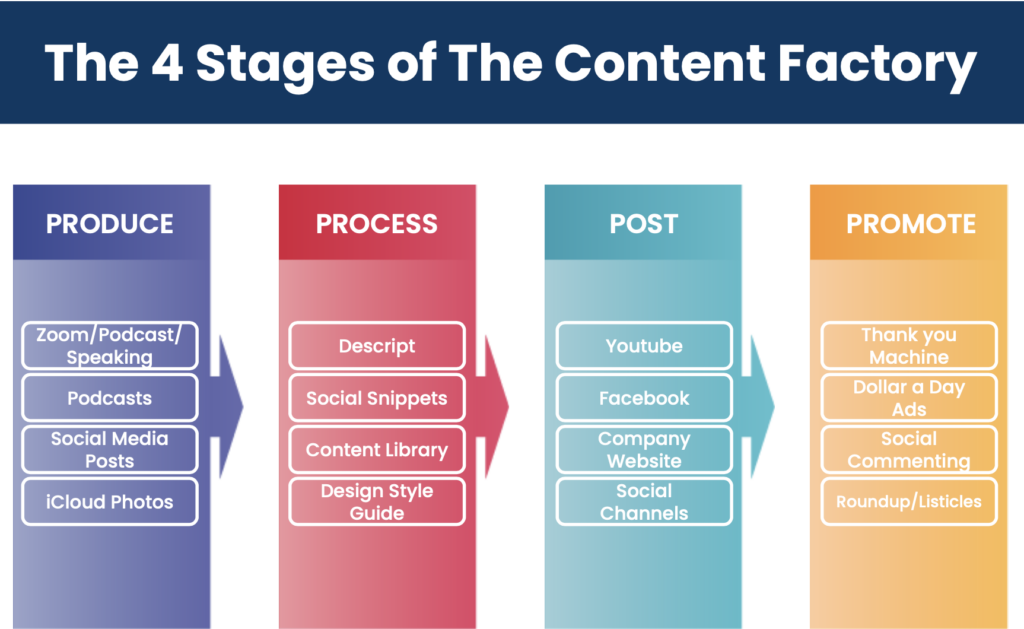
Get Started With These Five Steps
Here’s what you can do today:
- Google your name. See if a knowledge panel exists.
- If it does, claim it. If not, build up enough credibility to trigger one.
- Connect every digital property to your name and website.
- Publish real proof: short videos, photos, interviews, blog posts.
- Repeat using the Content Factory process.
AI SEO is simply good SEO, with structure and consistency.
You don’t have to cover every platform. Focus on showing up consistently in the places that matter most.
And as Darby Rollins put it:
“More isn’t always better. Sometimes, less, more intentional, higher quality content is the better way to go.”
He’s right. Now it’s your turn to take action.
Learn how to turn your expertise into proof that AI and search engines can’t ignore: watch the full Content Factory training.
